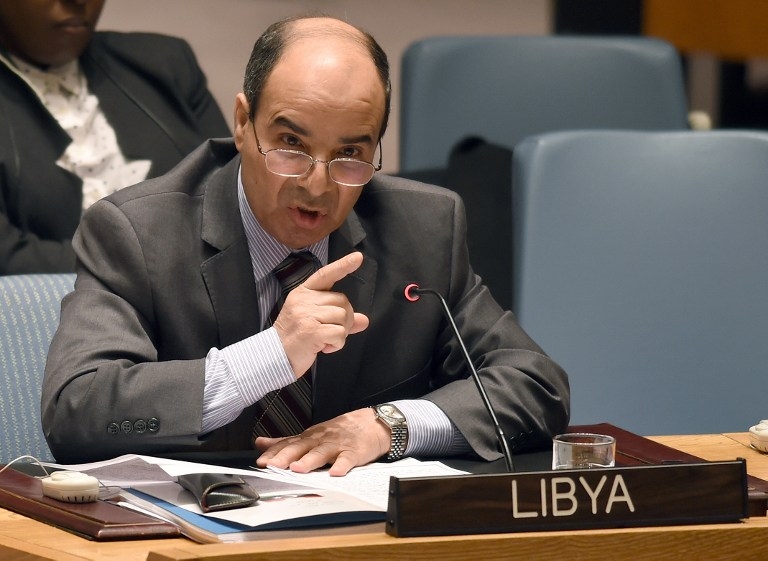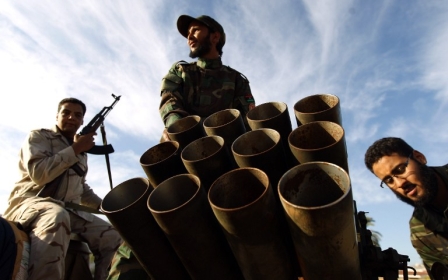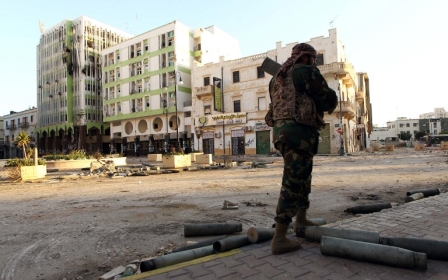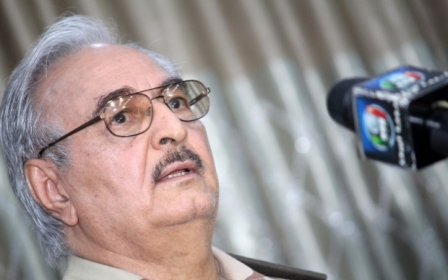Libya asks UN to approve arms contracts

Libya urged the UN Security Council on Wednesday to approve a request for military purchases as it struggles to combat Islamic State militants and protect its oil fields.
According to a document from the sanctions committee seen by AFP, Libya is seeking to purchase 14 MiG fighter jets, seven helicopters, 150 tanks, 150 armed personnel carriers mounted with machine guns, 10,000 grenade launchers, along with ammunition rounds and mortars from defence contractors in Ukraine, the Czech Republic and Serbia.
"The leadership of the Libyan army has submitted specific requests for exemptions from the arms embargo to the sanctions committee," Libyan Ambassador Ibrahim Dabbashi told the 15-member council.
"These requests relate to reinforcing the ability of the Libyan air force so that it may be able to monitor Libya's territory and borders, and prevent the terrorists from reaching oil fields and oil facilities, so that it can protect the fortune and wealth of the country," he said.
If none of the 15 members of the UN Security Council committee overseeing an arms embargo imposed on Libya, the request for the purchases will be approved on Monday, Reuters reported.
The request came less than two weeks after Libya asked the council to lift the arms embargo imposed in 2011 when the country descended into violence after the uprising against Muammar Gaddafi.
Britain, France and the United States oppose scrapping the embargo, arguing that it would fuel violence, but diplomats have stressed that arms contracts can be approved by the sanctions committee on a case-by-case basis.
The Libyan ambassador said the request for the military purchases was coupled with measures to tighten control, including allowing an observer to be dispatched on site to check on the shipment's whereabouts.
A previous request made by Libya for an exemption to the arms embargo was turned down because of the volume of weaponry on the list, some of which was highly sophisticated, diplomats said.
"We will see in the next few days the level of seriousness among the members of this council and how much they care for the security and stability of Libya and the region," said Dabbashi.
Libya has two rival governments and parliaments - the Tobruk-based House of Representatives and the General National Congress in Tripoli that is backed by Libya Dawn alliance of militias.
Islamist militants seized control of at least two oil fields in central Libya on Tuesday in the latest attack targeting the sector.
Libya has been awash with weapons since the uprising that toppled and killed Gaddafi, and opposing militias have since been battling for control of its cities and oil wealth.
The UN is brokering talks among the various factions and the government, with a fresh round set to take place in Morocco on Thursday and two further sessions planned in Algeria and Brussels next week.
UN envoy Bernardino Leon told the council that ending the conflict in Libya was "possible" but that the situation on the ground was "deteriorating rapidly".
The international community, he said, must "move quickly to present a clearly articulated strategy in support of the Libyan state and the efforts of a national unity government in combatting the growing threat of terrorism."
New MEE newsletter: Jerusalem Dispatch
Sign up to get the latest insights and analysis on Israel-Palestine, alongside Turkey Unpacked and other MEE newsletters
Middle East Eye delivers independent and unrivalled coverage and analysis of the Middle East, North Africa and beyond. To learn more about republishing this content and the associated fees, please fill out this form. More about MEE can be found here.




